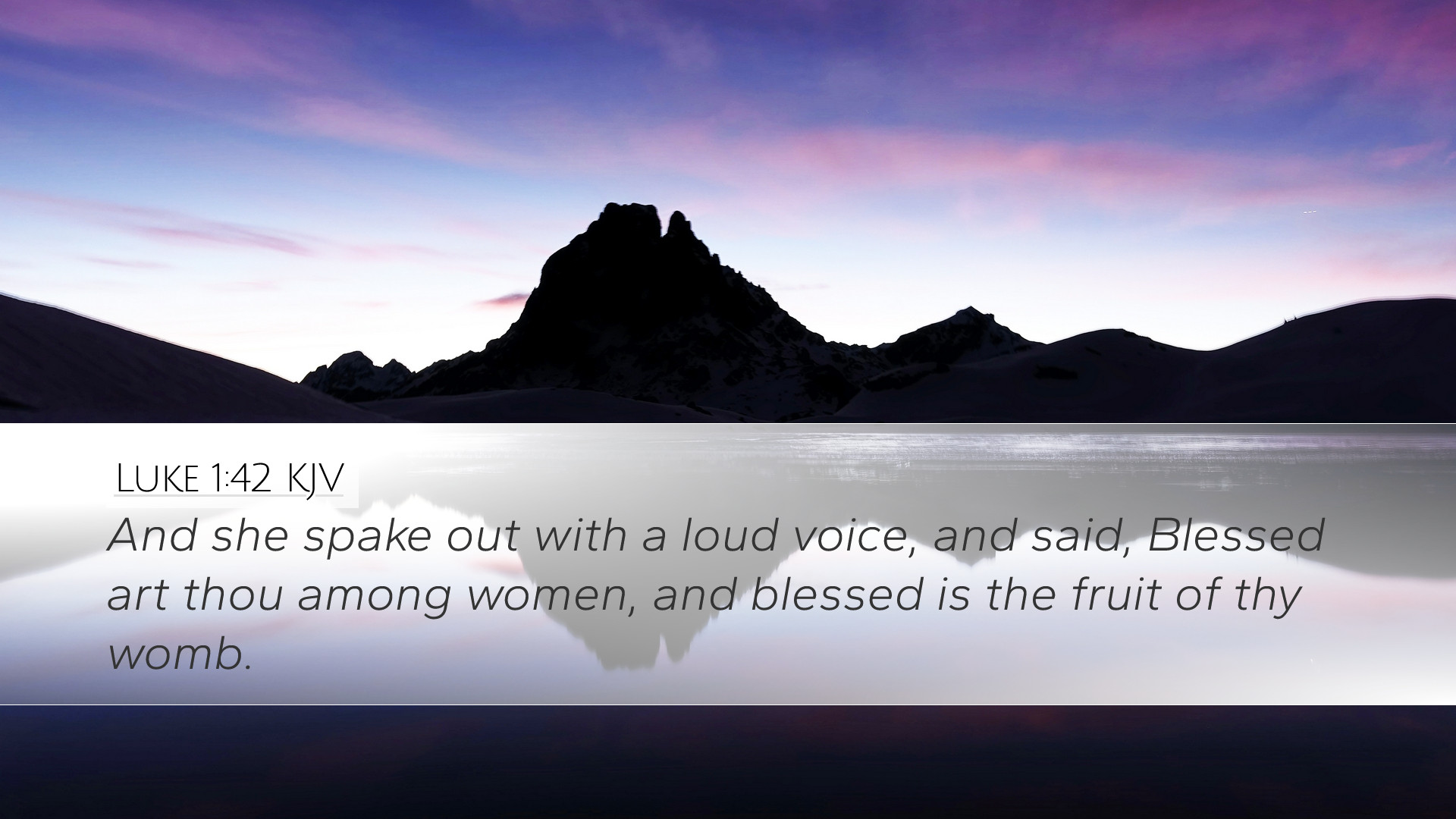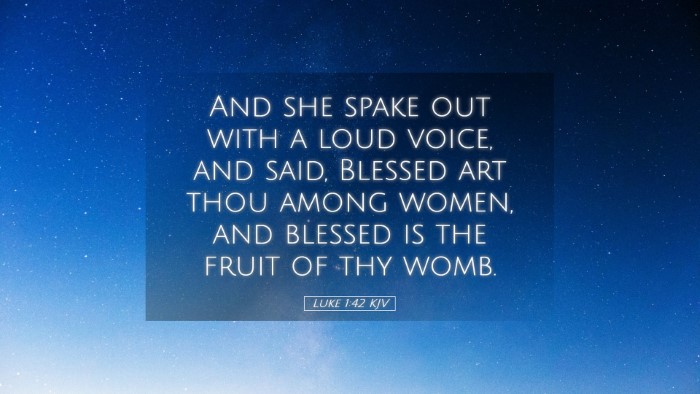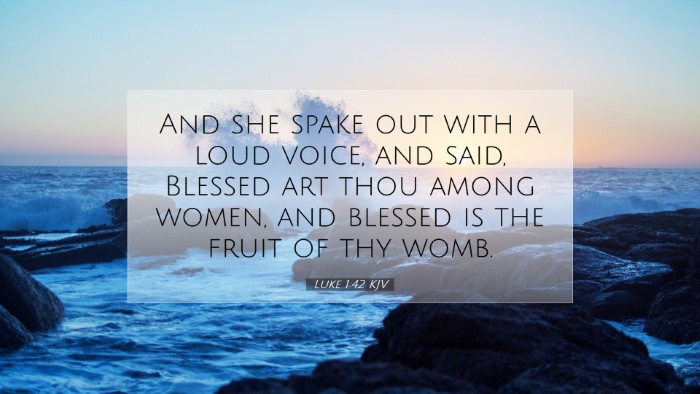Commentary on Luke 1:42
Text of Luke 1:42: "And she spake out with a loud voice, and said, Blessed art thou among women, and blessed is the fruit of thy womb."
Introduction
This passage occurs in the context of the visitation of Mary to her cousin Elizabeth, who is pregnant with John the Baptist. It is a significant moment that highlights the recognition of Jesus’ divine nature even before His birth, as well as the honored status of Mary within the Christian tradition. This commentary draws insights from renowned public domain theologians such as Matthew Henry, Albert Barnes, and Adam Clarke.
Contextual Background
The Gospel of Luke, known for its emphasis on social justice and the role of women, sets the stage for an extraordinary event where two pregnant women converse. Elizabeth, filled with the Holy Spirit, responds to Mary's greeting and declares her blessed. This encounter establishes theological truths about sin, grace, and the role of women in God’s redemptive plan.
Insights from Matthew Henry
Mary's Blessedness: Henry emphasizes the blessedness of Mary, not merely as an honor but as a reflection of her faith and submission to God’s will. Elizabeth’s proclamation aligns with prophetic tradition where women find elevated roles in God’s narrative.
Spiritual Insight: Henry also notes the joy that Mary and Elizabeth share, suggesting that true spiritual beauty is found in humble acceptance of divine favor, leading to authentic praise.
Insights from Albert Barnes
Understanding 'Blessed' in Context: Barnes delves into the term 'blessed,' explaining how it conveys a sense of divine favor. He points out that this joyous recognition by Elizabeth was rooted in the miraculous nature of Mary's pregnancy and the significance of Jesus' impending birth.
Historical Reflection: The context indicates that for Elizabeth, this moment of recognition was profound. Barnes notes the larger family dynamics and the cultural significance of women acknowledging one another in such spiritual and maternal roles.
Insights from Adam Clarke
Vocal Praise: Clarke stresses the importance of Elizabeth’s loud proclamation as an expression of joy and surprise. Her declaration serves not only as an affirmation of Mary’s role but also as a public acknowledgment of God's work in both their lives.
Theological Significance: Clarke highlights the theological implications of recognizing Jesus before His birth, emphasizing that such recognition is essential to understanding the incarnational nature of Christ. This is a pivotal moment where the truth of the gospel begins to manifest even before Jesus becomes known to the world.
Lessons for Pastors and Theologians
- Encouragement of Divine Affirmation: The significance of recognizing and affirming God’s work in one another's lives cannot be overstated. Pastors should encourage their congregations to build a culture of vocal support and encouragement based on God’s promises.
- Embrace of Women in Ministry: Women's roles, as illustrated by both Mary and Elizabeth, should reframe contemporary church practices, acknowledging the gifts and callings of women in ministry.
- Public Witness of Faith: The loud proclamation of Elizabeth serves as a reminder that faith should have a public dimension; believers are invited to testify of God's works openly.
- The Heart of Worship: The passage highlights that genuine worship emerges from a heart that's attuned to the workings of the Holy Spirit, suggesting that pastors nurture environments where such worship can flourish.
Theological Reflections
Luke 1:42 holds a rich theological framework that continues to be relevant in discussions about incarnation, prenatal recognition of Christ, and the blessedness of believers. The passage prompts reflection on the nature of divine favor and the human response in faith and worship.
Conclusion
The encounter between Mary and Elizabeth in Luke 1:42 encapsulates profound theological truths about recognition, blessing, and the role of women in the biblical narrative. Through the insights of Matthew Henry, Albert Barnes, and Adam Clarke, we gain a deeper understanding of the dynamics at play in this sacred moment. Pastors, students, and scholars are invited to reflect on how this blessed event informs contemporary faith and practice.


